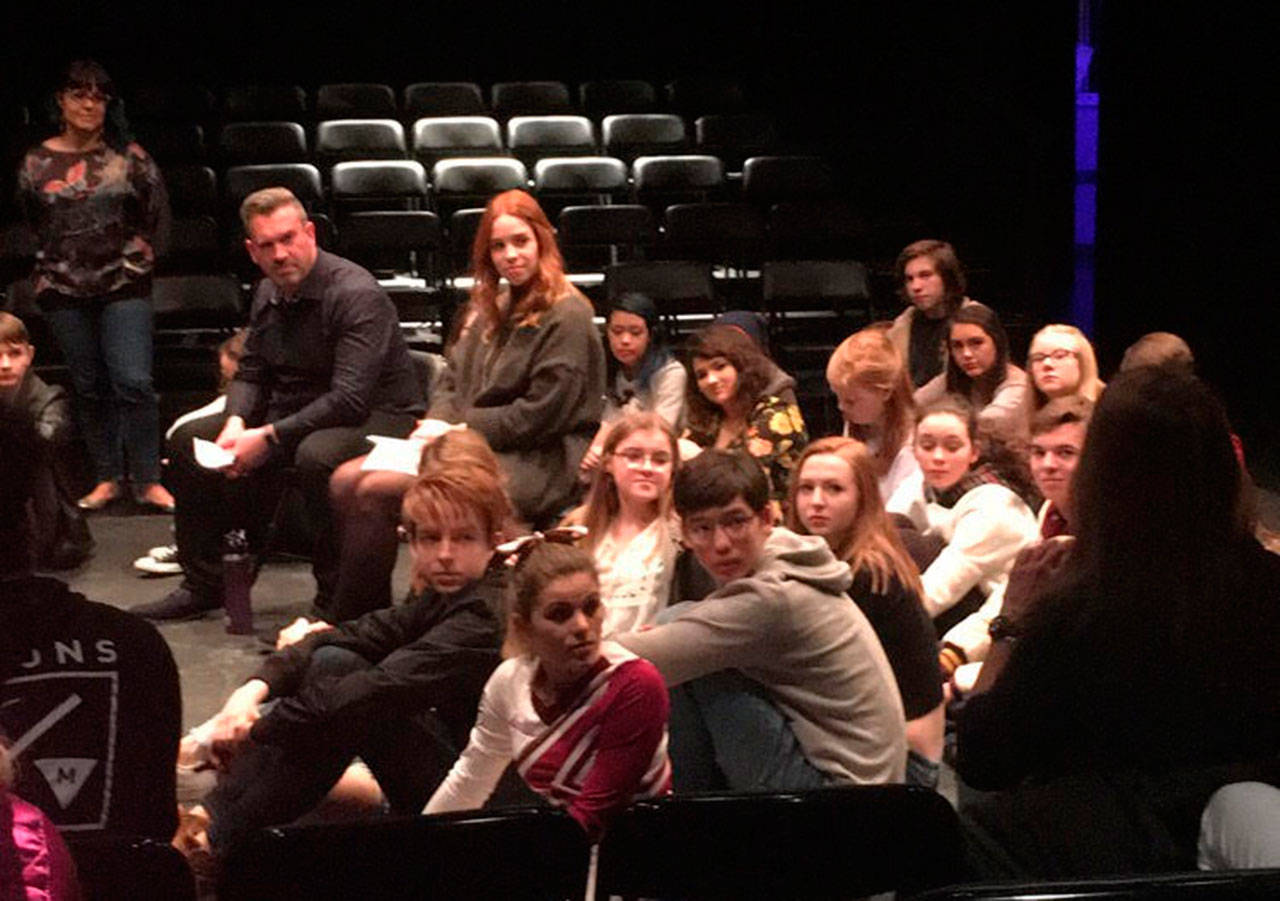Last spring, Mercer Island High School drama teacher Daniela Melgar set the performance lineup for her students. She selected “Good Kids” — based on the 2012 Steubenville rape case — as the winter play, but had no idea at the time how relevant it would be in 2018.
Because of the #MeToo and #TimesUp movements, the national conversation was focused on sexual assault and consent during the rehearsal and production process. The student actors say they are ready to start a dialogue in Mercer Island as well.
“We’ve reached what I hope is a turning point and we must have this conversation,” Melgar wrote in her director’s notes.
In the play, a high school student, “Chloe,” played by MIHS seniors Sophie Hankes and Augusta Norman in the show’s dual casts, drinks some vodka, wears a short skirt and goes to a party across town with her friend and her cousin. She leaves with a group of football players, but doesn’t remember anything that happens for the rest of the night.
She later learns that the boys sexually assaulted her while she was passed out, and that they videotaped, photographed and live tweeted the whole thing, leaving her and the rest of the community to grapple with the very public aftermath.
Representatives from the King County Sexual Assault Resource Center and LifeWire led workshops with the students to talk about rape culture, misogyny, toxic masculinity and victim blaming, and agreed to host “talk back” sessions with the actors and audience after the Friday night performances of “Good Kids.”
Parents, teacher and peers in the audience had a chance to ask questions about the students and the emotional impact of telling this story, the schools and how they can teach prevention and consent and the community and how it can help open the dialogue about sex, alcohol and social media with young people. Another session will be held on Feb. 2.
The characters, and the actors who play them, were surprised by the reactions of parents, teachers and coaches to the incident, and wondered what the role of adults usually is, and what it should be be, in cases like this.
King County’s prevention services coordinator Rachel Taylor said that sexual violence persists because it is “continually shrouded in silence and shame.” An audience member noted that many survivors don’t come forward because they can be doubly victimized — first by their assaulter, and then by a culture of “slut shaming.”
Taylor said that Mercer Island needs to redefine itself as a place where these issues are talked about, and that is a safe space in which survivors can come forward. The students said that they learned the importance of empathy, and looking out for each other. They also said that they appreciated the resources already available at their school, including counselors Cathy Gentino and Chris Harnish and student resource officer Art Munoz.
LifeWire’s social change manager Ward Urion said that some colleges and schools have started offering prevention classes for bystanders. He also said that human sexuality needs to be discussed more openly and earlier, starting in middle school. Teachers in the audience said that though these discussions may be uncomfortable and that they don’t have all the answers, they are ready to start working through these issues together.
“Young people are ready to have this conversation, and us adults need to get on the same page,” Taylor said.
Read more here.



